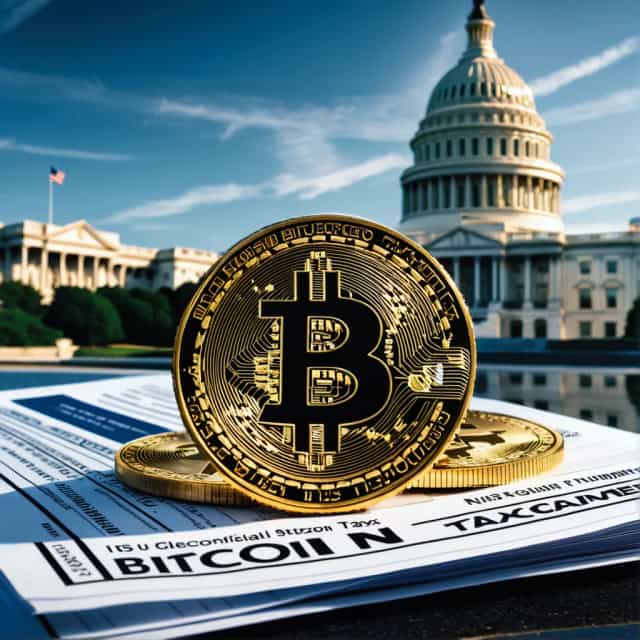
Image source: Block Media
Bitcoin: A "Neutral Safe-Haven Asset" Amid Eurozone Economic Turmoil
Arthur Hayes, co-founder of cryptocurrency exchange BitMEX, has put forth a compelling argument for Bitcoin (BTC) as a “neutral and safe haven reserve asset” during a time of financial instability in the Eurozone. Pointing to intensifying political unrest in France, increasing capital flight, and the European Central Bank’s (ECB) likely monetary interventions, Hayes predicts substantial growth in Bitcoin's value.
In his essay titled “Bastille Day,” published on July 2, Hayes elaborates on the socio-economic turbulence in France as prompting the need to “sell the euro and buy Bitcoin.” He asserts that the ECB will inevitably resort to printing trillions of euros to bail out struggling nations like France, which he believes will create inflationary pressures that could significantly benefit Bitcoin. “Whether the ECB prints money now or waits until after implementing capital controls, the outcome remains the same: inflation for the euro and increasing demand for Bitcoin,” Hayes wrote.
Eurozone Vulnerabilities and Critical Indicators
Hayes highlighted several key indicators signaling a fragile Eurozone economy, particularly within France. Two pivotal metrics reflect the region's vulnerabilities:
- TARGET2 Balance: This system facilitating cross-border payments between European Monetary Union members shows troubling signs of imbalances, which could escalate during economic instability.
- Foreign Dependency: Approximately 59% of France’s long-term government bonds and 70% of its banking debts are held by foreign investors. This reliance leaves France exposed to significant risks if foreign capital exits the country.
Hayes estimates that should foreign investors flee en masse, the ECB might need to print as much as €5 trillion (~$5.4 trillion) to stabilize the wider banking system.
Bitcoin: A Digital Asset Outside ECB Control
Hayes emphasized the strategic role of Bitcoin as a digital hedge that exists independently of ECB influence. Unlike traditional fiat currencies subject to political and monetary pressures, Bitcoin operates as a decentralized asset—offering European citizens a practical way to safeguard wealth during uncertain economic times. “Bitcoin allows Europeans to convert their euros into a global, neutral asset within minutes,” explained Hayes, underscoring its accessibility and autonomy.
According to Hayes, France’s €2.6 trillion ($2.83 trillion) in national deposits illustrates the scale of potential capital flight. He suggests as much as 25%—roughly €650 billion ($707 billion)—could vanish within days if investors seek refuge in alternatives like Bitcoin and gold. The ramifications could extend to countless asset classes, including equities and government bonds, potentially fueling a multi-trillion-dollar shift into Bitcoin.
The ECB’s Policy Dilemma
The European Central Bank faces a critical dilemma that Hayes believes will ultimately favor Bitcoin: tightening fiscal policies or resorting to expansive monetary easing. On one hand, austerity measures could suppress economic growth, exacerbating socio-political tensions. On the other hand, large-scale money printing would likely drive inflation higher, reducing confidence in the euro. Hayes stated, “The ECB will prioritize controlling Europe over preserving the currency’s value.” Ultimately, inflation seems inevitable—a scenario that strengthens Bitcoin's appeal as a hedge.
Time-Sensitive Opportunities for Eurozone Investors
In his analysis, Hayes issued a direct call to action for European citizens, particularly those in France, warning that capital controls could be implemented soon. “If you're a French citizen, now is your chance to act. But the window is closing quickly,” he cautioned, emphasizing the urgency of moving capital into Bitcoin or other alternatives before regulatory barriers emerge.
Bitcoin’s Role in an Era of Transition
Hayes’ argument paints a vivid picture of Bitcoin as more than a speculative investment. It positions the cryptocurrency as a viable reserve asset during periods of economic uncertainty, offering individuals and investors a strategic hedge against inflationary pressures, systemic banking risks, and volatile fiat currencies. As Europe grapples with worsening instability, the case for Bitcoin’s adoption as a neutral, global safe haven asset becomes increasingly clear.










